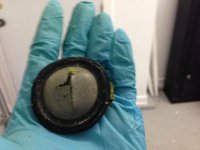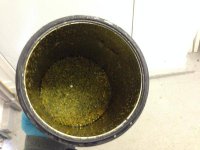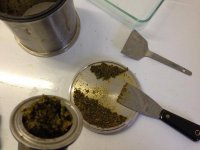Great post GratefulOne.
I'm a mechanic and over tightening is a common problem with new guys in the shop. I can imagine in this application with inexperienced people dealing with flammable things the tendency to wrench on those gaskets is high.
I tried quickly googling for a chart of Tri-clamp sizes/types and torque specs for different gaskets but didn't find one, where did you get the specs?
I bet a lot of people will be very surprised what the actual amount of proper torque feels like. Inch pounds ain't much. I'm surprised the clamps come with brass nuts to hold them together, especially on the larger sizes, but with small torque specs like that there shouldn't be much issue. Each time they're tightened down, even to the proper spec, threads are stretching and wearing a little bit. I'd hate to be doing a propane run with cracked threads on the brass nuts holding 10 or 12 inch tri clamps together. Anything you're tightening and loosing many times like the clamps, nuts, line fittings and all gaskets should be inspected and replaced often. This is a regular part of closed loop maintenance. I'm wagering many of the inexperienced out there are getting into this for the money, use some of it to stay safe.
Krunch, I hope you stay safe man. I have seen shop accidents and they are no joking matter. I would replace your gaskets and clamp hardware and dust off that torque wrench. Good idea on this thread, as it seems even experienced CLS operators can get complacent.
The nuts appear to be bronze and were no doubt chosen because they won't gall the stainless bolts like stainless nuts would. Depending on the bronze alloy, ultimate tensile strength can also be in the neighborhood of 100KSI, with a yield of around that of steel.
The amount of force possible over tightening, can exceed that, and even tightening beyond its ultimate yield, will eventually result in failure through creep.






